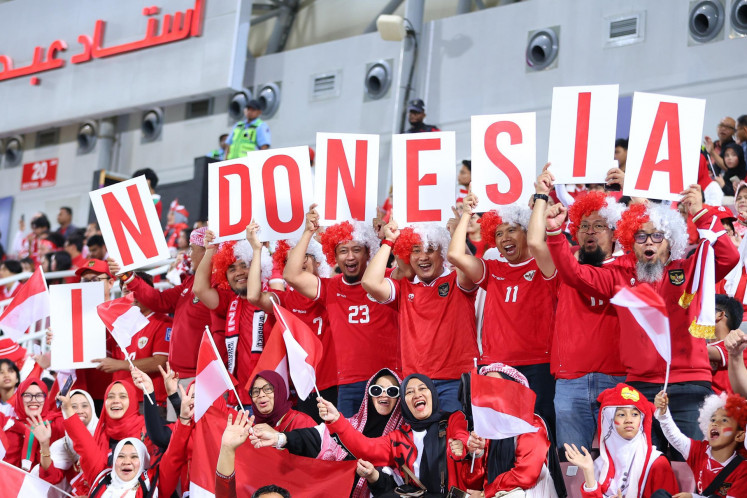Reimagining the future of pandemic PPR financing
The money must be spent in the right places and the right time -- that is to say, peacetime investment is no less important than wartime investment.
Change Size


COVID-19 has exposed huge financial gaps in pandemic prevention, preparedness and response (PPR). The World Bank (WB) and the World Health Organization (WHO) estimated at least an additional US$10.5 billion per year in international financing will be needed to cover the need of $31.1 billion annual investment for global pandemic PPR, encompassing surveillance, research and equitable access to medical countermeasures, public health and resilient communities, scalable health interventions and PPR strategy and operations.
In countries with the least fiscal space, lower-middle-income countries (LMICs) and low-income countries (LICs), the national needs for pandemic PPR are estimated at around $16.2 billion per year, for which an extra $7 billion per year in international financing will be needed (World Bank & WHO, 2022).
The intention of this article is to highlight the discussion on the following fronts: Global and national pandemic PPR financial gaps, key lessons for pandemic PPR financing, the global pandemic preparedness fund as a recent solution and recommendations for Indonesia as holder of the Group of 20 presidency.
The problem of pandemic PPR financing is much more complex than just finding resources to close the financial gaps. To understand this complexity, we capture three key lessons to better comprehend the needs of pandemic PPR financing.
First, the importance of a coordinated global collective action. Given the fragmentation of many global health initiatives (i.e. the Global Fund, GAVI, etc.), a coordinated global collective action, in terms of governance, financing and prioritizing remains imperative in increasing countries’ PPR capacity.
Second, the importance of a financing mechanism that is oriented to a preparedness approach. The money must be spent in the right places and the right time; that is to say, peacetime investment is no less important than wartime investment.
Third, the importance of an inclusive and representative financing mechanism. Take COVAX as an example. This global initiative aimed at equitable access to COVID-19 vaccines, a global public good that is critical to the whole pandemic PPR, is indicated as non-inclusive since it lacks significant involvement of the LMICs and LICs in its governance. Inclusive participation is in fact needed in pandemic PPR financing to achieve legitimacy and to ensure longer-term priorities and needs of countries of all income levels are met.
During the second Finance Ministers and Central Bank Governors (FMCBG) meeting, all the G20 members agreed to choose the Financial Intermediary Fund (FIF) as a new global pandemic PPR financing mechanism under the World Bank. Indonesian Finance Minister Sri Mulyani Indrawati said that the establishment of the FIF is expected to fill the void of pandemic PPR financing, particularly during peacetime.
However, can the FIF be a “kryptonite” of multi-dimensional pandemic PPR financing problems? After exploring the White Paper of the FIF, three points should be of concern if Indonesia's G20 presidency wants to develop global health architecture beyond business as usual.
First, non-inclusive design of the governance structure, where the decision-making members are only limited to the founding donors. Our main concern is how such an approach can ensure the formal representation of countries with different needs and capacities. Learning from the past, global health financing has been dominated by only several countries with respective global health priorities, thus not giving the WHO the freedom to allocate assistance based on their needs.
Second, the frequency and size of the fund would depend on the amounts of contribution paid by the donors to the FIF. In addition, the use of voluntary contributions makes us concerned that pledged donor resources will find it difficult to close the previously mentioned financial gaps. In this way, there is a risk of unsustainability.
Third, civil society organizations (CSOs) are (still) not involved in the decision-making process, with the limited role as observers. In fact, as implementing entities, CSOs have the experience to understand PPR issues in a real-world context. This capacity allows CSOs to have a more strategic role, especially to be involved in the decision-making process of the governing board.
Recommendations
First, Indonesia's G20 Presidency should promote the adoption of a constituency-based governance approach to bring in broad-based representation on the governing structure, while ensuring efficiency in its implementation. The governing board will be jointly elected for a time-limited term on a rotational basis and representing a geographically diverse group of LIC, MIC, HIC to be determined in a consultative process.
Second, Indonesia’s G20 presidency should promote a multi-annual budgeting process and fair share arrangements to better respond to inequality and local needs, including via country-coordination mechanisms, and encourage long-term pandemic PPR investment. Fair-share arrangements will allow all countries to contribute according to their fiscal capacity. With these financial modalities, the FIF will not depend on traditional donor countries.
Third, Indonesia's G20 presidency should advocate for a more progressive stance of CSOs inclusion as an equal partner with a seat in the decision-making board to ensure the whole-of-society approach is fulfilled. CSOs remain concerned about the proposal of the FIF as presented in the white paper.
It is unclear whether Indonesia supports the inclusion of CSOs in the decision-making board of the FIF while the Indonesian officials repeatedly emphasize that they want to strike the right balance between bureaucracy and inclusivity.
***
M. Iqbal Hafizon is a technical policy officer at the Center for Indonesia’s Strategic Development Initiatives (CISDI) currently working on several research projects on the issues of COVID-19 preparedness, prevention and response from the national, regional and global level. Sayyid Muhammad Jundullah is an advocacy officer at CISDI, currently working on a global health security project.









